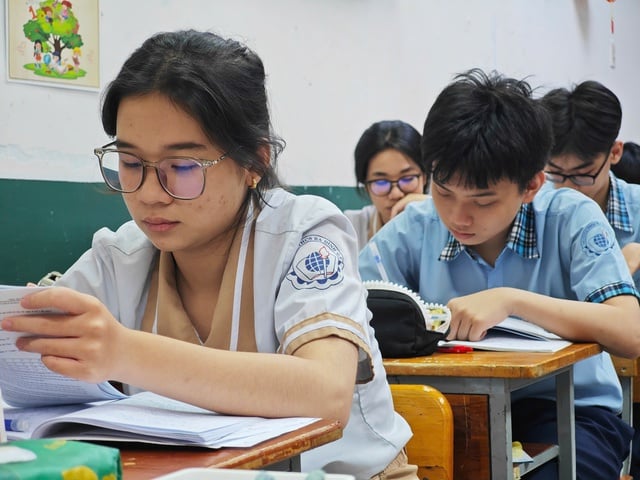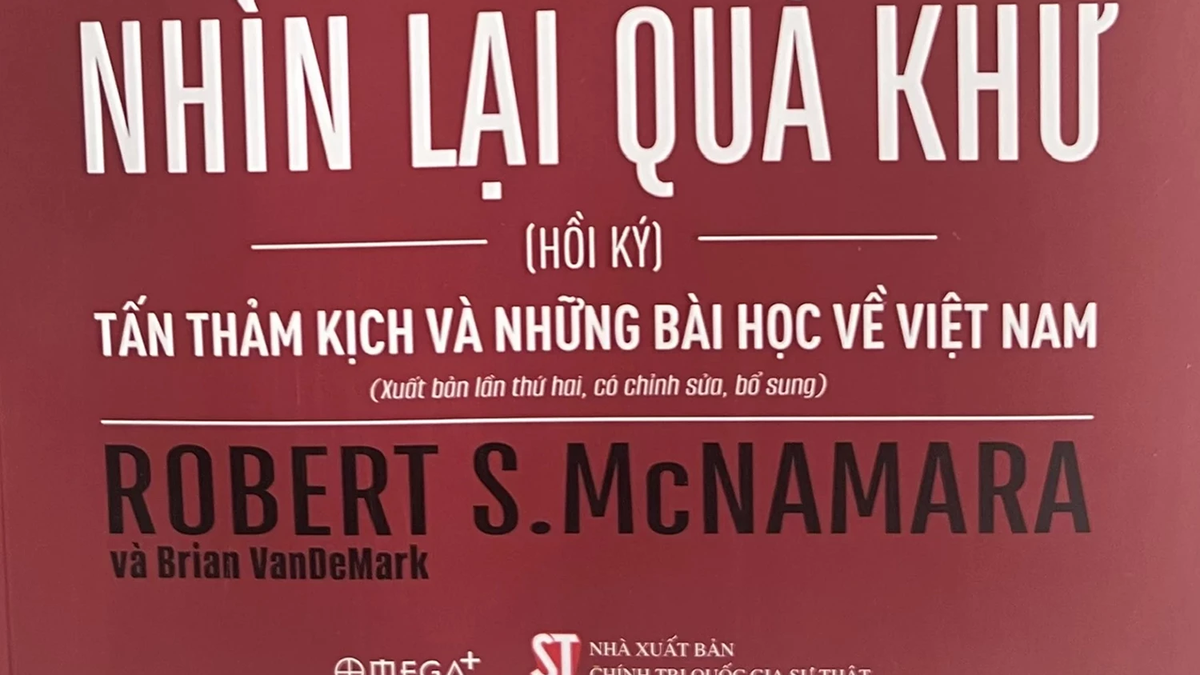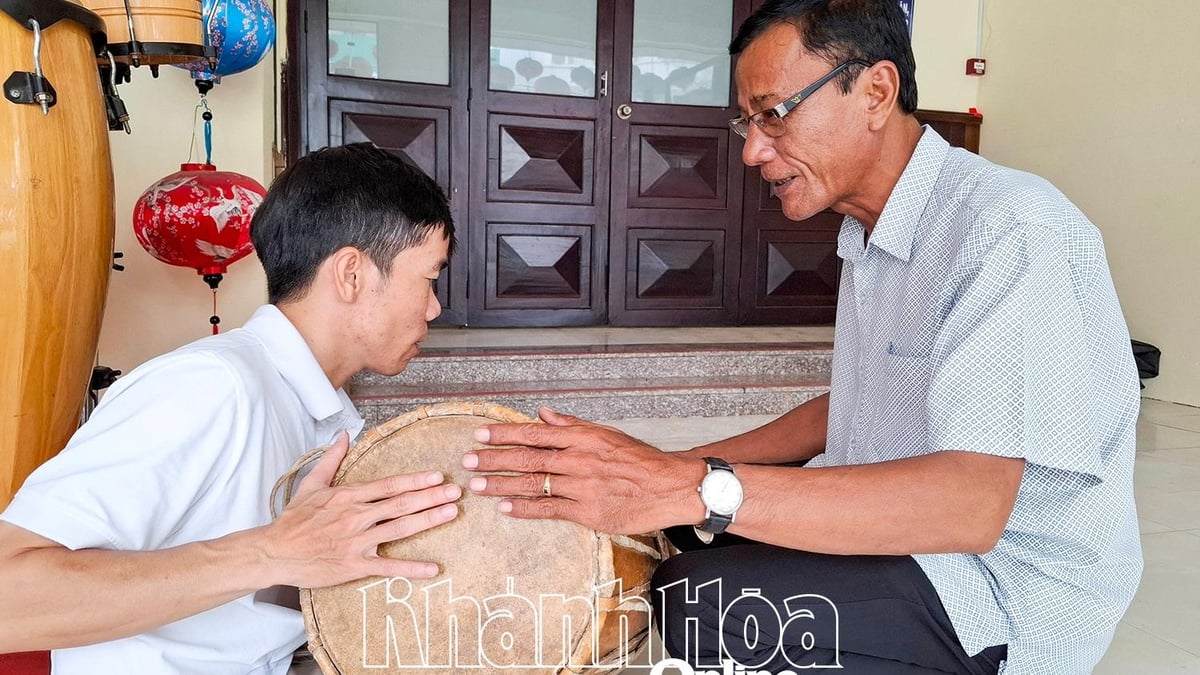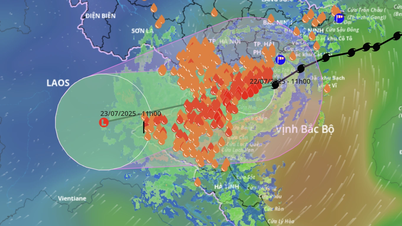SUPPORT ABOLISHING SECONDARY SCHOOL GRADUATION DIPLOMA
Specifically, the Ministry of Education and Training proposed to abolish the junior high school diploma, delegate the authority to grant high school diplomas to principals, decentralize the management of kindergartens, primary schools, and junior high schools to communes and wards, and abolish the regulation that the Ministry of Education and Training approves localeducational documents...
According to the draft, in the diploma system, the Ministry of Education and Training will abolish the junior high school diploma and assign educational institutions to confirm completion of the junior high school program.

The draft law amending and supplementing a number of articles of the Law on Education transfers the authority to grant high school graduation certificates from the director of the Department of Education and Training to the school principal.
PHOTO: DAO NGOC THACH
The Ministry of Education and Training believes that this is consistent with the policy of organizing two-level local government (according to the current Education Law, the junior high school diploma is issued by the Department of Education), consistent with the goal of universalizing education and with international trends. According to the Ministry of Education and Training, the confirmation of completion of the junior high school program does not affect the rights and obligations of learners.
Specifically, many developed countries (such as the US, Canada, UK, Australia, Finland...) do not issue junior high school diplomas but use the principal's confirmation of academic performance in lower grades to consider higher education or stream students.
Regarding the abolition of junior high school diplomas, experts and educational institution managers said that this is reasonable, because after completing junior high school, students will be granted a certificate of completion of their level of education.
Mr. Nguyen Van Ngai, former Deputy Director of the Department of Education and Training of Ho Chi Minh City, commented that assigning secondary school principals to confirm students' completion of their education level, similar to the current primary level, is completely appropriate. Currently, the Department of Education and Training of districts and towns also issues secondary school graduation certificates based on the results of the secondary schools' reports and proposals. Therefore, when organizing a two-level local government, this abolition is reasonable, reducing unnecessary administrative procedures.
In addition, according to the 2018 General Education Program, junior high school is basic education, so after students complete grade 9, receiving a certificate of completion of the basic education program is appropriate.
INCREASING THE AUTONOMY OF HIGH SCHOOLS
The draft revised law states that the authority to grant high school diplomas will be transferred from the director of the Department of Education and Training to the school principal. According to the drafting committee, this is to implement the policy of decentralization and delegation of power.
Mr. Huynh Thanh Phu, Principal of Bui Thi Xuan High School (District 1, Ho Chi Minh City), expressed his support for the proposal to assign high school principals to sign and issue graduation certificates to students. According to Mr. Phu, this is not only a trend of international integration but also consistent with the process of reforming the state administration towards streamlining, decentralization, and efficiency. With the urban government model, a two-level government, issuing certificates right at the school helps shorten the time, reduce administrative procedures, and bring practical convenience to students. At the same time, this demonstrates trust and enhances the role and responsibility of school leaders in assessing and confirming learning outcomes.
Master Pham Le Thanh, teacher at Nguyen Hien High School (District 11, Ho Chi Minh City), said that allowing high school principals to issue high school graduation certificates instead of the Department of Education and Training is a commendable policy, bringing many positive points and reducing administrative procedures. This regulation helps reduce intermediaries, shorten the time and process of issuing certificates, creating convenience for students, especially when they urgently need certificates for university admission or work or other purposes.
According to Mr. Thanh, this regulation increases school autonomy, helping schools be more proactive in management, promoting the principal's responsibility and improving the effectiveness of local education.

According to the draft, in the diploma system, the Ministry of Education and Training will abolish the junior high school graduation certificate and assign educational institutions to confirm completion of the junior high school program.
Photo: Dao Ngoc Thach
PROVINCIAL LEVEL ASSESSMENT AND APPROVAL OF LOCAL EDUCATIONAL MATERIALS
The draft amended law separates the provisions on local educational materials from the provisions on textbooks to clearly define that these materials are not textbooks. Instead of the Ministry of Education and Training approving them as currently, the draft assigns the Director of the Department of Education and Training the authority to compile and appraise local educational materials, the provincial appraisal council appraises them and the provincial People's Committee approves them.
The organization of local educational materials is carried out according to the following process: The provincial level establishes a compilation council, a review council, and an independent appraisal council with members who are experts and reputable teachers. After being carefully evaluated, the provincial level approves and issues them to schools for teaching and learning.
Many principals said that when merging provinces, the new provincial government needs to review and integrate the content, removing duplicate parts, updating administrative information, place names, cultural traditions, and historical relics to suit the reality of the new province or city. When there is updated information, the learning materials will be edited. That is, localities must establish an adjustment council, with a team of teachers or local experts to re-edit. Thus, localities are proactive in compiling, approving, and implementing teaching materials about the locality. This reduces administrative procedures and promptly puts the materials into teaching and learning.
Source: https://thanhnien.vn/du-thao-sua-doi-luat-giao-duc-hoi-nhap-quoc-te-phu-hop-tinh-hinh-moi-185250512210848598.htm






































































































Comment (0)